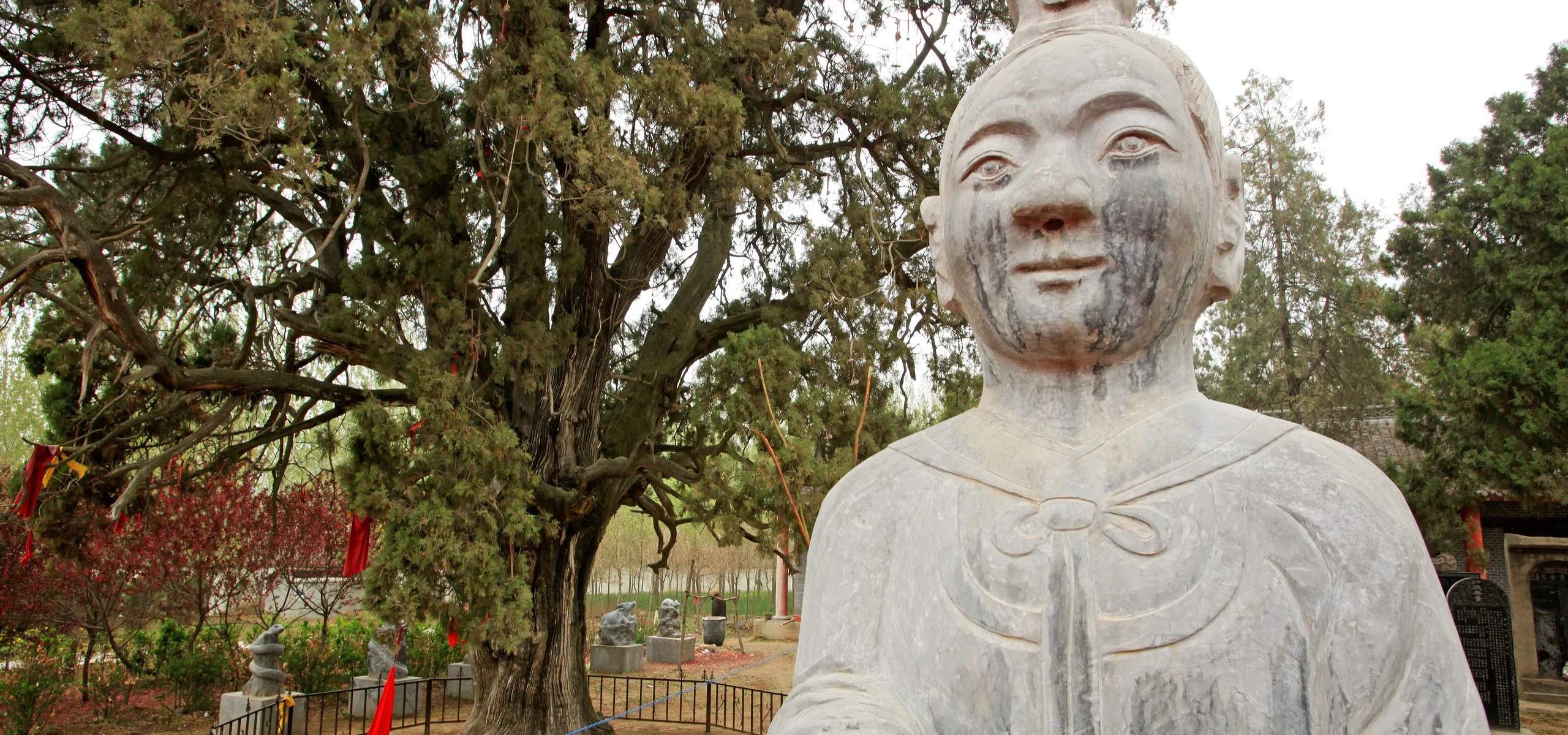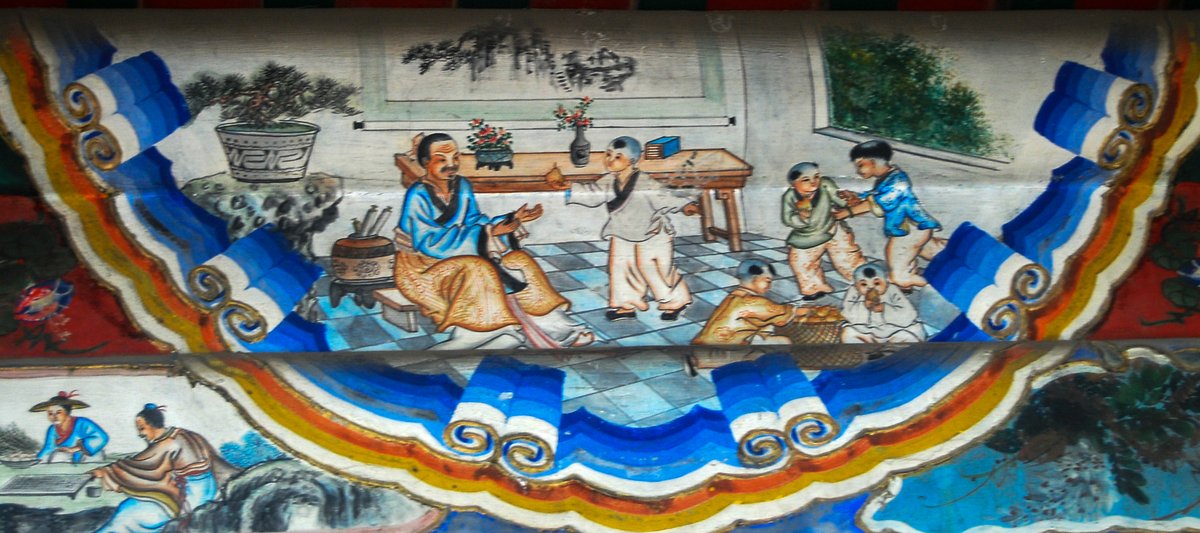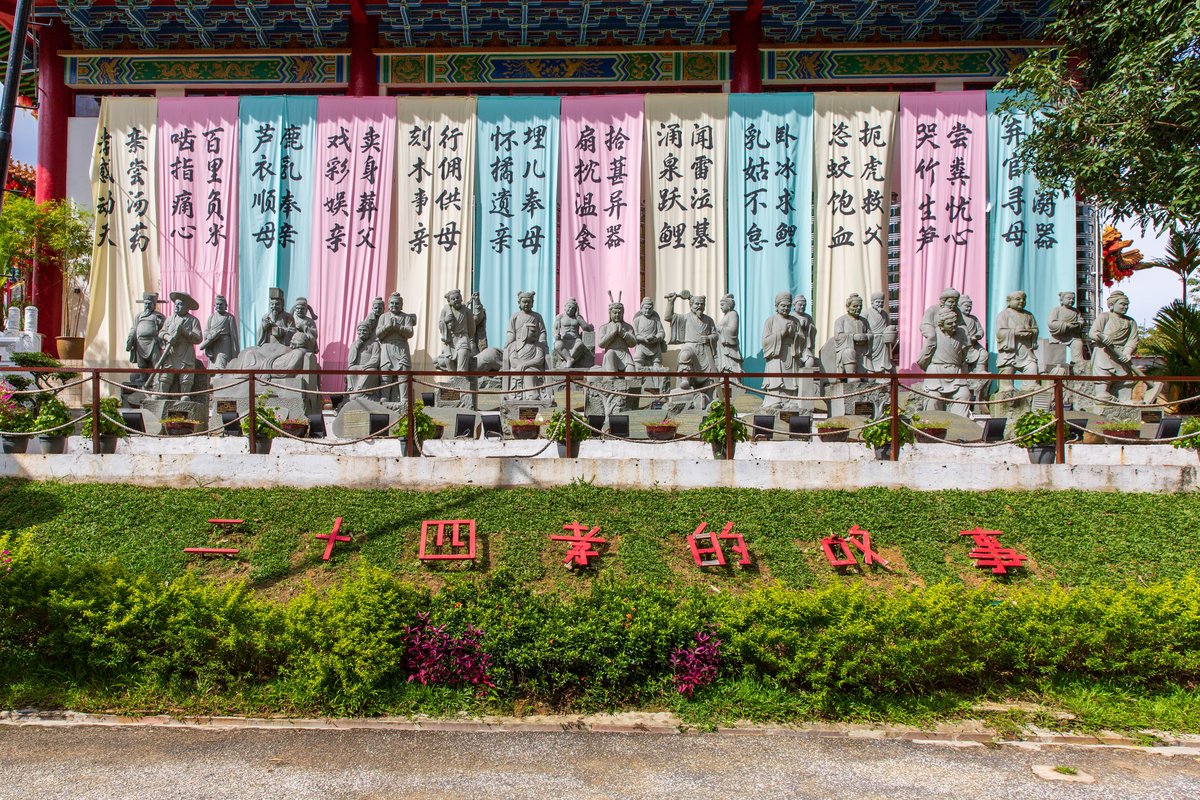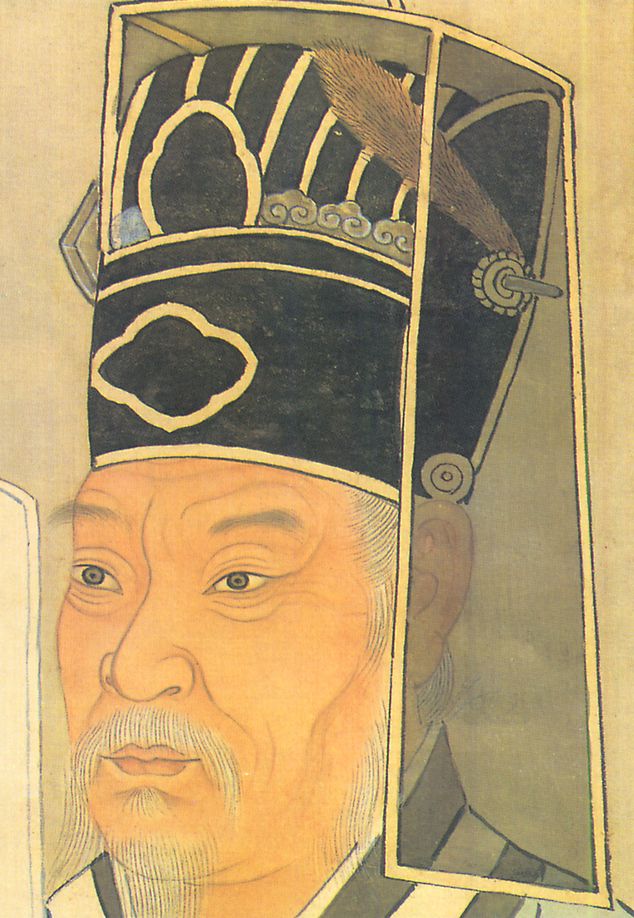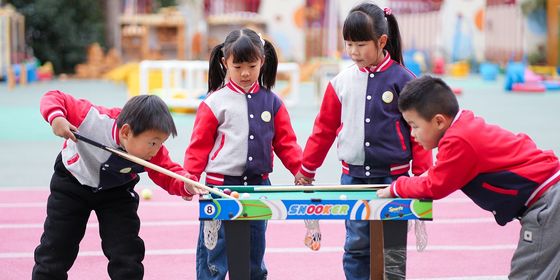Child prodigies and model kids from ancient China for Children’s Day
Chinese media and politicians often refer to children as “the flowers of the country, and the hope of the future.” Today, Children’s Day in the PRC, China is celebrating childhood, and the kids are enjoying a day off from the normal grind at school.
That break is well deserved, because being a kid is no picnic, with pressure from parents and school teachers often immense in China’s exam-oriented education system, and a strong tradition of filial piety pervading society. Parents hope their children will be hard workers, smart, attentive, and brave—like Kong Rong (孔融), who is famous for letting his older brothers take the best fruit when he was just 4 years old, and who later became a renowned scholar during the Han dynasty (206 BCE – 220 CE).
In order to motivate children to work harder, and instill in them important values, a number of stories of “model children,” including Kong, have become common for parents and teachers alike. Here are four children from ancient China who have become role models today:
Huang Xiang fans the pillow and warms the bed for his father
Filial piety was an important moral requirement in ancient China. In the Yuan dynasty (1206 – 1368), scholar Guo Jujing (郭居敬) selected 24 stories of dutiful children and compiled a book known as The Twenty-Four Filial Exemplars (《全相二十四孝诗选》), in an attempt to educate people about the value of being a good son or daughter. Since then, the 24 heroes of those stories have become symbols of filial piety, including the tale of Huang Xiang (黄香), a nine-year-old child who lived during the Han dynasty.
Huang’s mother died when he was very young, and Huang devoted himself to looking after his father. From the age of nine, he took on care of all aspects of his father’s life. In the hot summer months, he would fan the pillow and sleeping mat before his father went to bed, so that he could feel cool; while in the frigid winter, he would go under the covers in advance to keep the bed warm.
His efforts were summarized into the chengyu “扇枕温席 (shānzhěn wēnxí, fan the pillow and warm the mat),” which is now used to refer to a child’s filial piety. The story was also included in the Three Character Classic (《三字经》), a textbook for young children believed to have been written during the Song dynasty (960 – 1279), which records: “Huang Xiang warms the bedclothes for his father at the age of nine. The moral is filial piety is important.” Since then, Huang Xiang has become a role model for all the children in the country.
Sima Guang saves his friend
Sima Guang (司马光) was an influential politician, historian, and writer in the Song dynasty. But compared to his academic and political achievements, an incident from his childhood is perhaps more widely known today.
According to the History of Song (《宋史》), an official historical record compiled in the Yuan dynasty, Sima saved a friend from drowning when he was young. Sima was playing in the yard with his friends, when one of them climbed up onto a large vat of water, lost his footing, and fell in. The boy couldn’t swim, and the vat was too tall for the other children to reach in time to pull their friend out. All the children were frightened and ran off, except Sima, who found a rock and threw it at the vat, breaking it so that water flowed through the hole he made. Sima’s friend was thus saved.
As Sima’s reputation spread, parents in China often told this story to their own children, hoping that they would be as calm, brave, and quick-witted as Sima in a crisis.
Gan Luo becomes prime minister at the age of 12
Being a dutiful child or saving a friend from danger is just not enough sometimes, especially when parents constantly compare their kids to those of their friends and relatives. Gan Luo (甘罗), a child prodigy who became the prime minister of a state, is surely the least flattering comparison for any child today.
Gan Luo lived in the Warring States period (475 – 221 BCE), and his story can be found both in the Records of the Grand Historian (《史记》), a history of ancient China by Western Han dynasty scholar Sima Qian (司马迁), and the Strategies of the Warring States (《战国策》), a text on diplomacy and strategies compiled during the Western Han dynasty.
When Gan was just 12, he worked in the service of Lü Buwei (吕不韦), the prime minister of Qin, and the true power-holder of the state. Gan’s grandfather was a top official in the Qin state, and he was thus able to work at court at such a young age. Lü sought to attack the State of Zhao in alliance with the State of Yan, and planned to send his military official Zhang Tang (张唐) to the State of Yan as a diplomatic gesture. If Zhang’s visit was received well, he would establish an alliance with Yan. But Zhang refused to go, worried that the journey across enemy territory would be too dangerous.
Lü was enraged. Zhang’s refusal threw his whole plan into disarray. Gan decided to convince Zhang, and asked: “Who is the more successful general, you or Bai Qi [a former general of Qin]?” Zhang answered: “I cannot compare to General Bai Qi.” “Who is the more powerful prime minister, Lü Buwei or Fan Ju [a former prime minister of Qin]?” Gan asked again. “Lü is more powerful than Fan,” answered Zhang.
Then, the 12-year-old Gan threw down the gauntlet to the experienced general: “In the past, Fan wanted to attack the State of Zhao, but Bai didn’t agree. Then Fan killed Bai. Today, Lü is sending you on a mission to the State of Yan, if you refuse, I really don’t know how you will die.” Feeling threatened, Zhang gave in and agreed to go.
Later, Gan demonstrated his cunning again when he volunteered to go to the State of Zhao for negotiations. Gan told the king of Zhao that if he handed over five of his cities to the Qin, they would betray their alliance with Yan and attack them instead, in concert with the Zhao. The king agreed, and handed the cities over. Gan had, however, double crossed Zhao, and not long later the State of Qin and State of Yan marched on Zhao territory, taking another 11 cities from them.
The young Gan was rewarded with a promotion to prime minister. With this story, Gan made sure that generations of Chinese children struggle to use their age as an excuse for not achieving.





